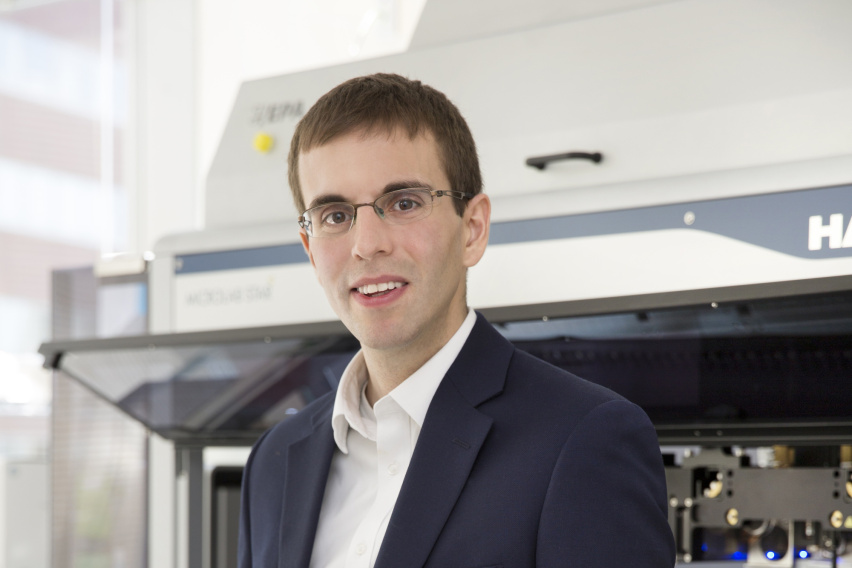American Association for Cancer Research
April 20, 2016
Figuring out which drugs will work best for an individual patient can be challenging and time-consuming, if not impossible. Last spring, however, KI postdoc Oliver Jonas published his development of a microdevice that can be implanted into tumors, using a biopsy needle, to test the efficacy of multiple cancer therapeutics or combinations. At this year's AACR annual meeting, Jonas presented preclinical results on the device, which has also been used to uncover new methods of drug resistance. He described updates to the device, which can now hold up to 100 different drugs or combinations as well as relay results in real-time, and he announced the launch of the first clinical trials of the device.
Jonas is a member of the laboratories of Robert Langer, the David H. Koch Institute Professor, and Michael Cima, a David H. Koch Professor of Engineering. This work was supported in part by the Koch Institute Frontier Research Program.
